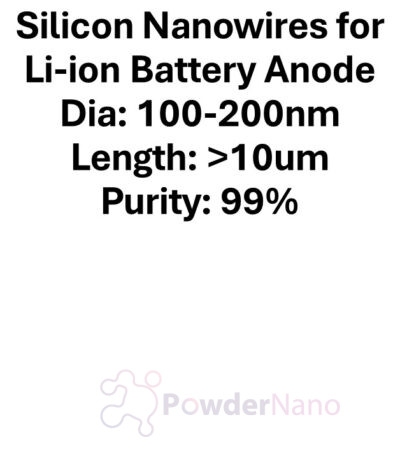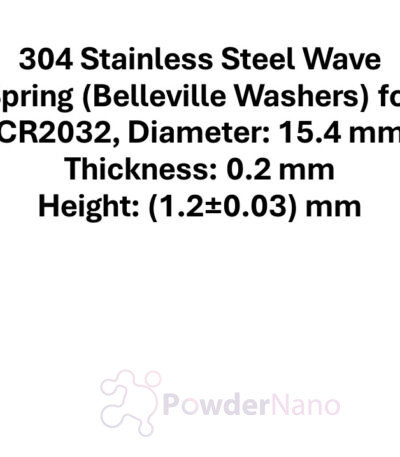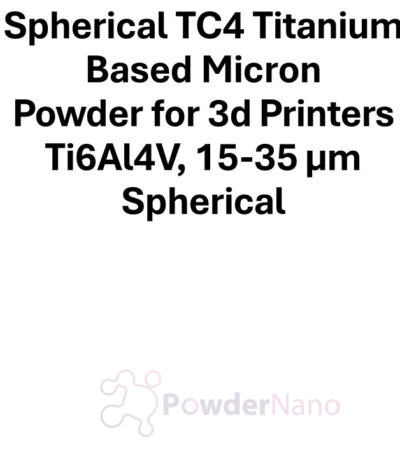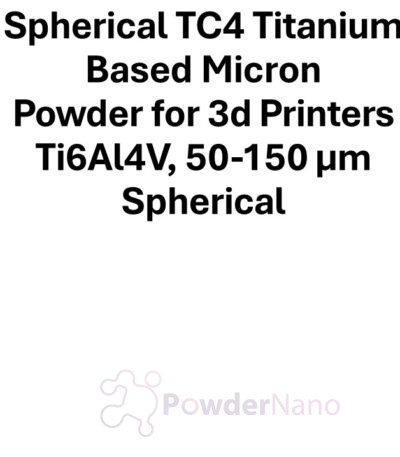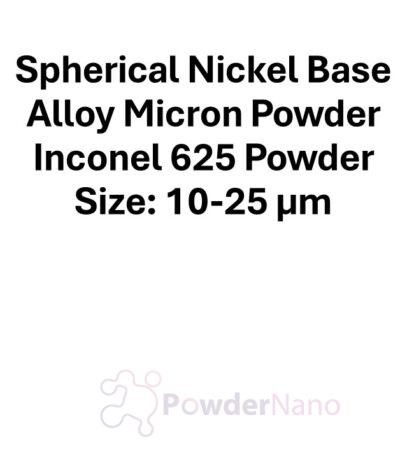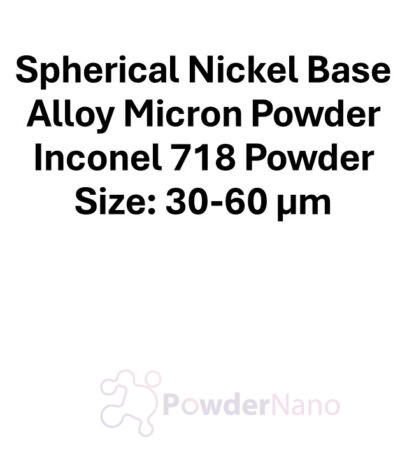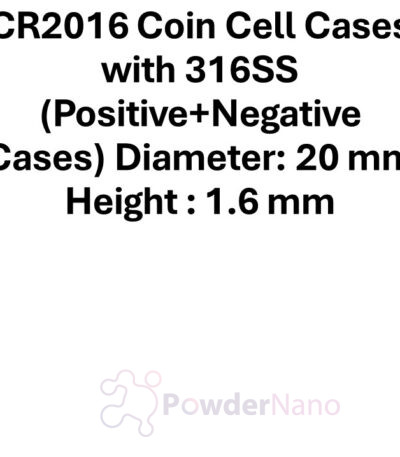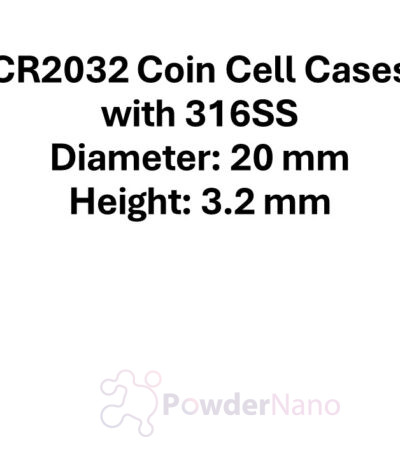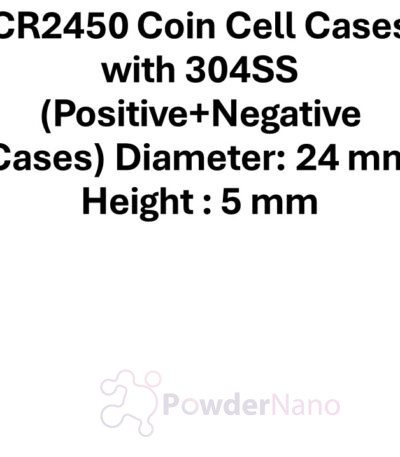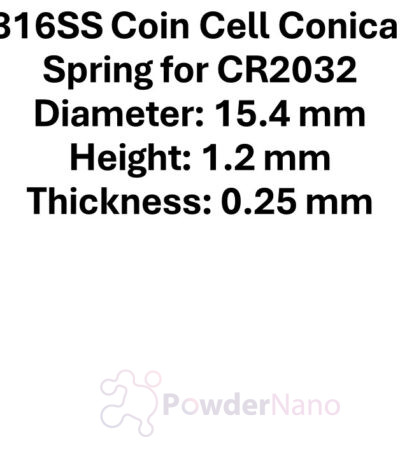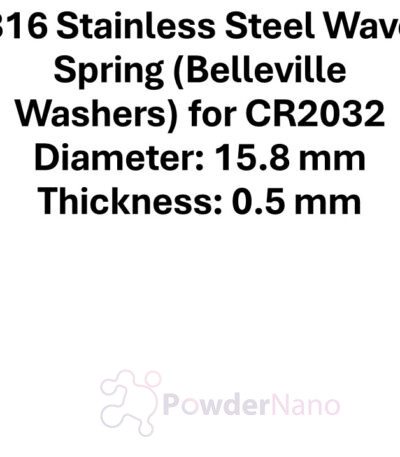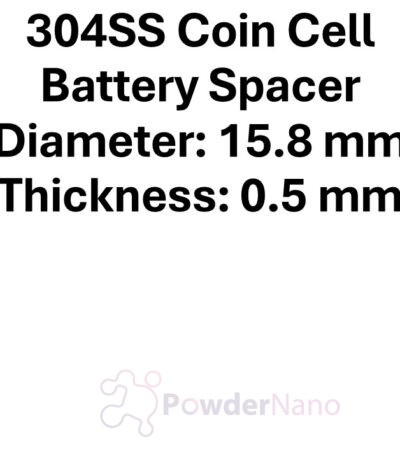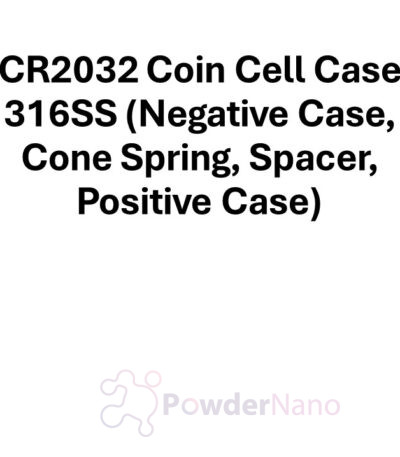Technical Specification:
- Material Composition:
- Material: 316 Stainless Steel (316SS)
- High corrosion resistance, ensuring durability in battery environments.
- Non-reactive with lithium-ion electrolytes and electrode materials.
- Material: 316 Stainless Steel (316SS)
- Components:
- Negative Case:
- Base of the coin cell housing, providing electrical contact with the negative terminal.
- Cone Spring:
- Ensures consistent pressure and contact between the electrodes.
- Made from conductive and corrosion-resistant material.
- Spacer:
- Acts as a separator and support for cell assembly, ensuring proper alignment of components.
- Positive Case:
- Top cover of the coin cell housing, providing electrical contact with the positive terminal.
- Negative Case:
- Physical Dimensions:
- Diameter: 20 mm (standard CR2032 size).
- Thickness: Supports assembly of 3.2 mm thick cells.
- Surface Properties:
- Polished Finish: Smooth surfaces to enhance sealing and prevent electrolyte leakage.
- Corrosion Resistance: Excellent resistance to chemical degradation, even in harsh electrolytic environments.
- Thermal Stability:
- Operating Temperature: Stable under typical lithium-ion coin cell testing conditions (~-20°C to 60°C).
- Suitable for elevated temperatures during formation cycles in research setups.
- Compatibility:
- Electrolytes: Compatible with both liquid and solid-state lithium-ion electrolytes.
- Electrode Materials: Works with a variety of cathode and anode materials, including lithium, graphite, and NMC.
Applications:
- Primary Applications:
- Coin Cell Assembly for Research and Development:
- Used in laboratories for testing new battery materials and configurations.
- Coin Cell Assembly for Research and Development:
- Industries:
- Battery Research:
- Essential for studying novel anode, cathode, and electrolyte materials in small-scale setups.
- Energy Storage Development:
- Supports prototype testing for lithium-ion, solid-state, and other advanced battery chemistries.
- Consumer Electronics:
- Applicable in commercial coin cell manufacturing for devices like watches, sensors, and remote controls.
- Battery Research:
- Advantages for Applications:
- Standardized Design:
- Ensures compatibility with standard CR2032 testing equipment.
- Corrosion Resistance:
- Stainless steel construction prevents degradation during long-term testing.
- Ease of Assembly:
- Includes all necessary components (negative case, spring, spacer, positive case) for efficient and reliable cell assembly.
- Reusability:
- Durable material allows for multiple cycles of testing and disassembly.
- Standardized Design:
- Specialized Uses:
- Solid-State Battery Research:
- Suitable for testing solid electrolytes and lithium-metal anodes.
- Material Optimization:
- Ideal for screening and optimizing new electrode formulations.
- Prototype Testing:
- Useful in developing advanced coin cell batteries for niche applications.
- Solid-State Battery Research:
- Challenges and Mitigation:
- Sealing Precision:
- Inadequate sealing can lead to electrolyte leakage.
- Solution: Employ consistent assembly techniques and use compatible gaskets.
- Inadequate sealing can lead to electrolyte leakage.
- Spring Degradation:
- Repeated use may reduce spring tension.
- Solution: Replace springs periodically for consistent performance.
- Repeated use may reduce spring tension.
- Sealing Precision:
Summary:
The CR2032 Coin Cell Case (316SS) is a high-quality assembly designed for lithium-ion battery research and small-scale production. Comprising a negative case, cone spring, spacer, and positive case, it provides a robust, reusable platform for material testing and battery prototyping. The 316 stainless steel construction ensures excellent corrosion resistance, compatibility with various chemistries, and durability in laboratory and industrial environments. This case is essential for advancing energy storage research and development.
